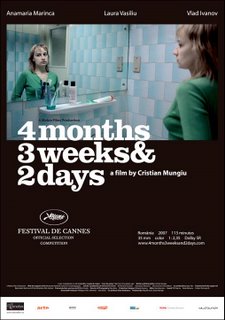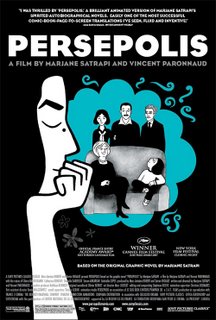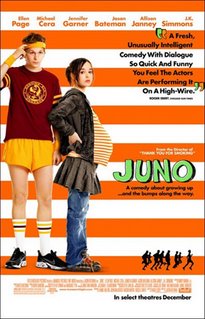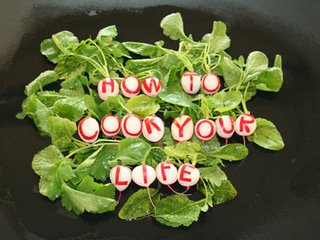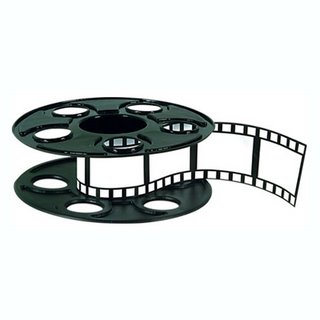
If you’ve glanced over to the right recently, you’ve noticed that the “watching list” has grown quickly as I’ve tried to find a subject for my next movie column. No column-fodder yet, but if you’re curious about what to spend your time and money on, here’s my two cents on some current releases and rentals:
Volver: I love Pedro Almodovar movies. I saw my first in New York City a million years ago, when I was volunteering for an avant-garde film house and we somehow scored the premiere of Tie Me Up! Tie Me Down! for a fundraiser. At the party after the screening, Victoria Abril danced and Liza Minelli sang “New York, New York.” It’s hard to believe now that I was once in the same room with those women. Meanwhile, Volver is classic Almodovar: an incredibly dark subject (incest, patricide) painted in candy-colors; intensely complicated relationships between a group of women (all sisters and mothers in this case); men who are mostly dolts and quickly dispensed with; allusions to Hollywood classics (here, mostly Mildred Pierce). And extra bonus: watching Penelope Cruz cook!
A Map of the World: Sigh. There’s so much to recommend this movie: a great cast (Julianne Moore and Sigourney Weaver); a compelling premise. The film explores what happens to the friendship between two women when one’s daughter dies while in the other’s care. I thought it might be too harrowing to watch, really. But instead it was annoying. The two women are painted in such broad strokes (Weaver is the bad mom because her house is a mess, she confesses that her child bugs her; she loses her temper); the director just takes the easy way out every time, going for the big emotion rather than the subtle reaction. And although it got a little less simplistic, a little more gratifyingly murky and real toward the end, by then it had lost me.
Junebug: I rented this because I loved Amy Adams so much in Enchanted, and she’s the best thing in the movie; otherwise, it sort of made me angry. A newlywed, sophisticated urban couple travels to rural North Carolina to visit his family and try to sign up a new artist for her Chicago gallery. The husband’s family (including Amy Adams as his sweet, very pregnant sister-in-law) is every stereotype of poor, white and southern, and the couple’s visit turns the family a bit upside-down. Then tragedy strikes. The couple leaves, breathing a sigh of relief at escaping the sadness and poverty, and we’re left with… what, exactly? I was just shaking my head at this one.
Juno: I enjoyed this, but it also left me confused, so I’ll probably write about it further so that I can figure myself out. Mostly, I just loved Allison Janney, who gets the Movie Stepmom of the Year award.
Romance and Cigarettes: A working-class musical about lung cancer and infidelity, why not? You’d think it’s a John Waters movie, but it’s directed by John Turturro, with an amazing cast including Susan Sarandon, Mary-Louise Parker, James Gandolfini, Aida Turturro, Kate Winslet and Steve Buscemi. Rent it if only to see Mary-Louise Parker, Aida Turturro and Mandy Moore sing their cover of “I Want Candy.” It’s so much fun.
Enchanted: I would have just eaten this up when I was 7. Instead, I sat there watching it with my inevitable Mom-glasses on, a little distracted thinking about the mothers (one absent, and why; one wicked, and also, why? Well, because she’s a stepmother, that’s why. Or something.) Anyway, take your favorite little girl to this one because the brunette gets the prince, the princess is a toughie, and there’s a lot of fun singing and dancing.
Home for the Holidays: Oh my goodness, I just loved Robert Downey Jr. Watch it for him alone.
Dan in Real Life: This is very pretty and entertaining, and it’s nice to see a portrayal of a fairly competent single father. I didn’t at all care about the main couple (will they or won’t they find true love?), played by Steve Carell and Juliette Binoche; they are well-spoken and fun to watch, but the minor characters, the family members on the side, were far more interesting (though honestly, the family jazzercize was a little too much for me.). Plus, it was nice to see an adopted child in a movie and not have it be a big deal.
Margot at the Wedding: Do you sense a trend? I was in my Family Reunion Mode with this and the previous two films. I loved Noah Baumbach’s first feature, The Squid and The Whale, but this is just recycling too much of that story, without any of the humor, and with the extra added feature of a mean and critical sister. Didn’t like it at all.
Committed: Another totally likeable cast (Heather Graham, Mark Ruffalo, Luke Wilson), an interesting premise (young woman chases after the husband who leaves her), and a director I love (Lisa Kreuger also made Manny & Lo). But this one bored me. Am I too old to care about the problems of young childless couples in their 20s? Maybe so.
The Station Agent: This is another of those movies that didn’t actually tell the story I was interested in watching. It’s very well done, very talky and slow, and the characters — a dwarf, a hot dog vendor, and a woman (Patricia Clarkson) who’s suffered the death of a child– are interesting, but I wanted more Patricia Clarkson and less of the quirky oddball men. Also, there’s lots of long shots of the men watching trains which I wanted to cut and paste out of the movie somehow for my boys to watch.


